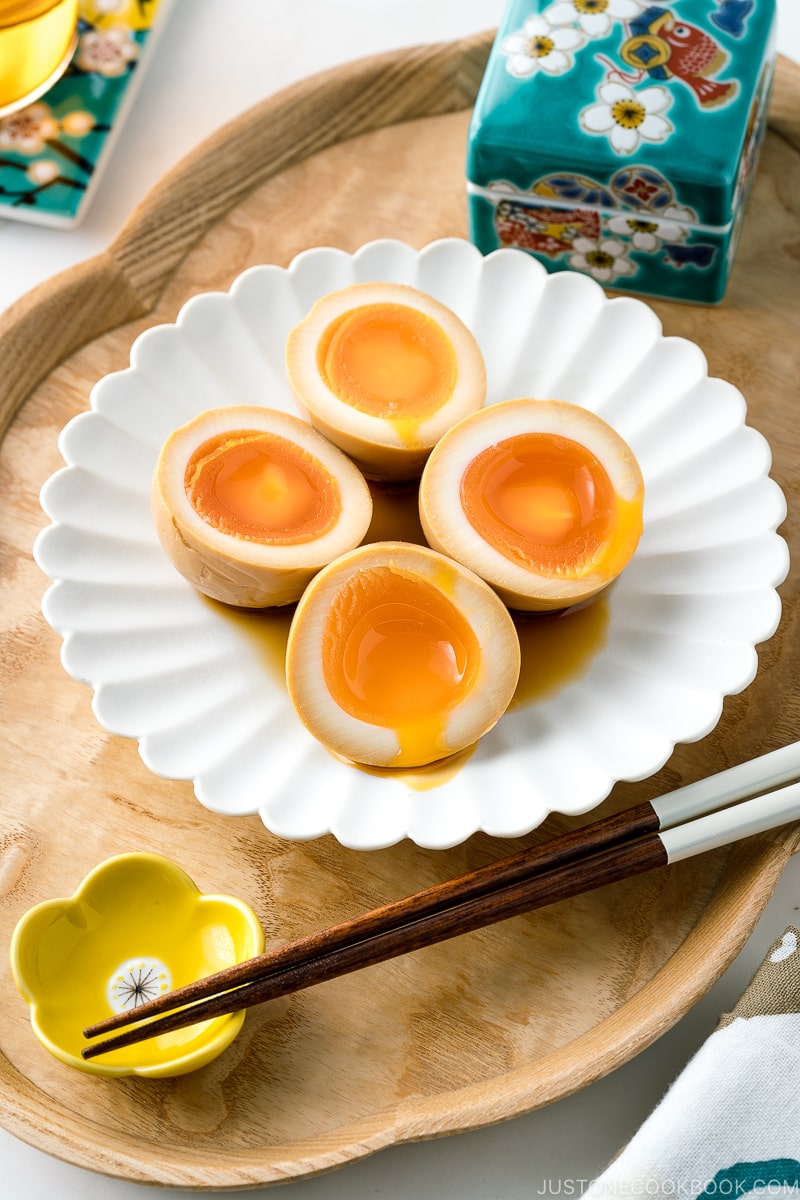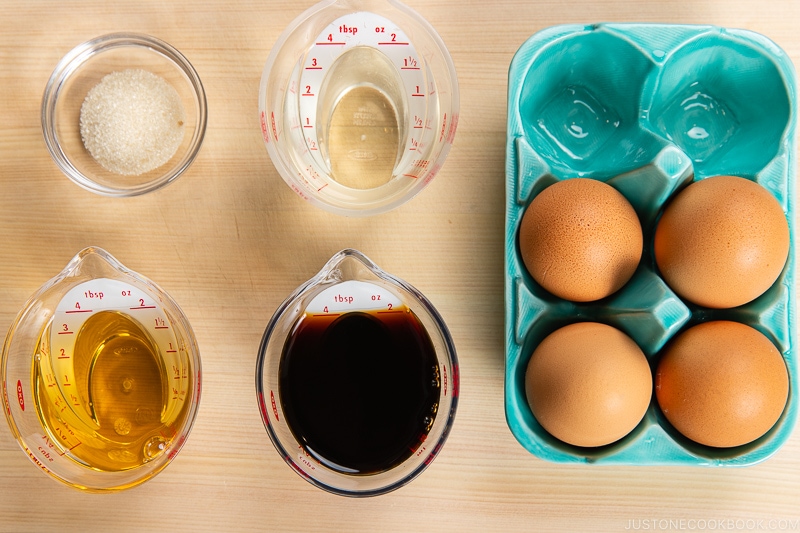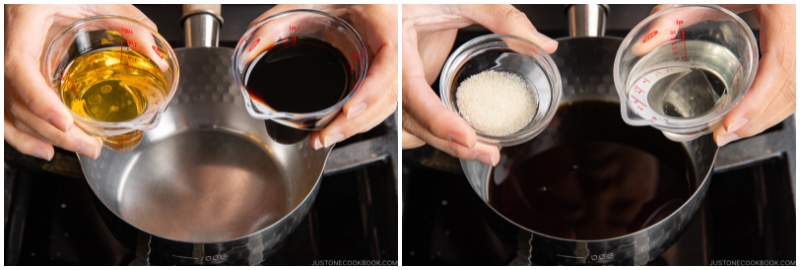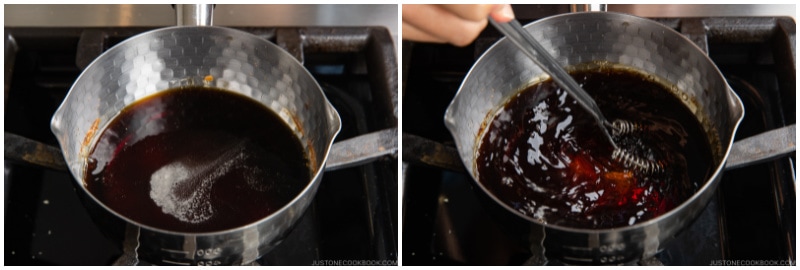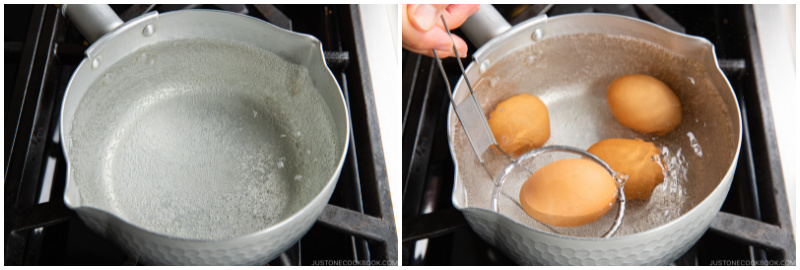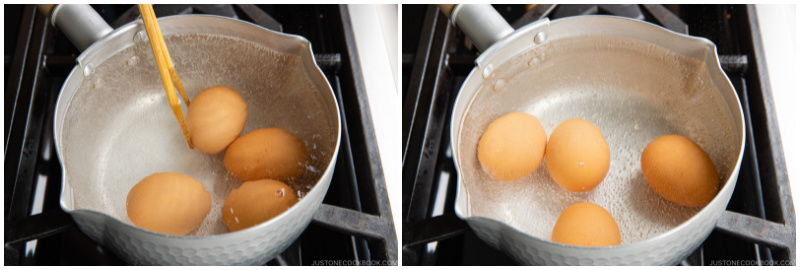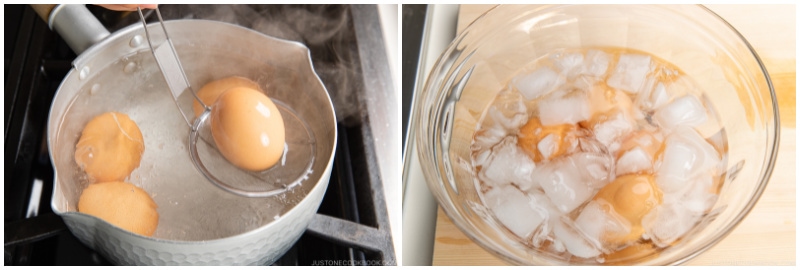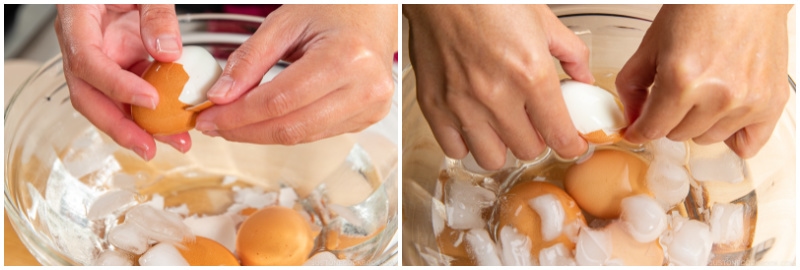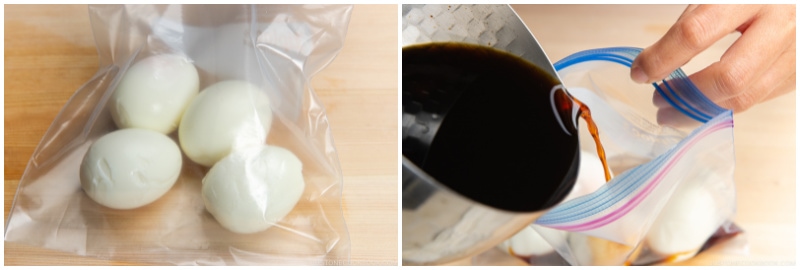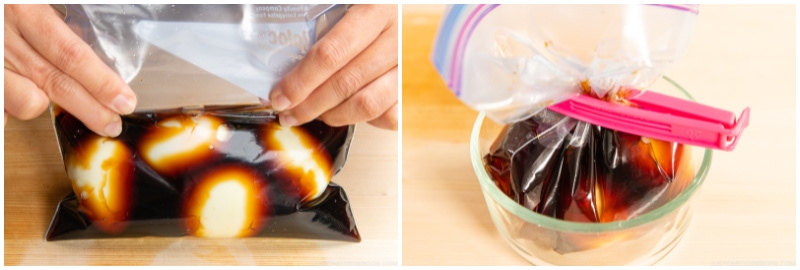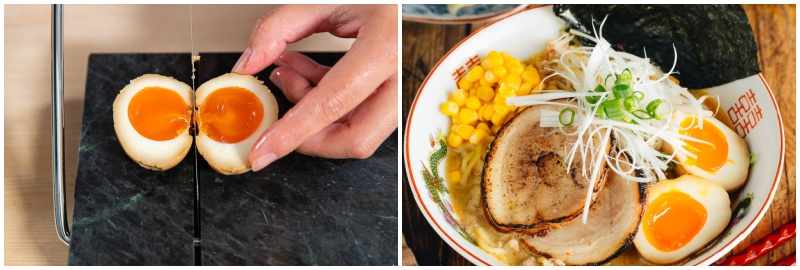A great bowl of ramen is built upon a few significant components. There’s hot broth, fresh-made noodles, and the toppings. As far as the toppings go, no one can resist a perfectly cooked ramen egg that sits alongside sliced chashu, a sheet of nori, and green onions. Some would even argue that ramen egg is a must! When done right, ramen egg is creamy, silky, full of umami, and ready to enrich and intensify your ramen enjoyment. The truth is, ramen eggs are not just for ramen alone. You can enjoy these delicious eggs anytime, in many different ways!
What Are Ramen Eggs?
Ramen eggs are Japanese soft-boiled eggs known for their custardy, jammy, runny yolk, and umami flavor. They are marinated overnight in a sweetened soy-based sauce. In Japan, we call these marinated eggs Ajitsuke Tamago (味付け玉子), short for Ajitama (味玉) or Nitamago (煮玉子). While these eggs are excellent on ramen, they are also fantastic to enjoy as a side dish, snack, or packed in a bento. Don’t limit yourself there! You can even add them to salads or sandwiches. That’s the magic of ramen eggs. They are so good and amazingly versatile.
Ingredients for Ajitsuke Tamago
Five ingredients are all you need, and you’ll be surprised at how easy it is to make ramen eggs at home.
Good quality eggs, especially if you plan to make soft-boiled eggs Soy sauce Mirin Sake (or water) Sugar
For the marinade, you can create your version with additions (such as chili flakes for spice, etc), but let’s stick with the basics.
What changed from the 2011 Recipe?
Some of you might be familiar with the original recipe I shared in 2011. In the past, I used water instead of sake. However, for food safety reasons, I started making my ramen eggs with sake and like this version much better. Why sake? The amino acids in the fermented rice wine enhance food flavors by adding hints of sweetness and umami, which makes the eggs taste better. In case you’re wondering, we would boil off the alcohol from the sake before marinating the eggs so it’s perfectly safe for kids to consume. As part of the refinement, I also added a bit of sugar. To put the old and new recipes to the test, I had my family try out the two versions multiple times, and they concluded that the winner goes to this updated recipe. For those who can’t consume alcohol, you can still use water.
How To Make the Best Ramen Eggs
You can find the detailed recipe below, but here’s a quick overview.
Cooking Tips
Tip #1: Cook the marinade
To make the marinade, I highly recommend cooking it for 1 minute after boiling. This ensures the sugar dissolves and the alcohol evaporates, leaving only the natural umami and sweetness in the sauce.
Tip #2: Use refrigerated eggs
Using a fine-mesh sieve/strainer, gently lower your eggs straight from the fridge into the (already) boiling water and lower the heat slightly to a simmer.
Tip #3: Cook 7 minutes from the first egg in boiling water
Start setting the timer for 7 minutes from the first egg submerged in boiling water. It takes about 30 seconds or less to submerge all four eggs (set the timer for 6 minutes and 30 seconds if you start the timer when you finish submerging all the eggs. Little adjustment matters!) I use large American eggs for this recipe, and knowing that egg sizes vary in different parts of the world, you might need to adjust the cooking time slightly.
Tip #4: Shock the eggs in ice water
Shock the boiled eggs in ice water immediately and let them chill for at least 15 minutes. I use the same ice water to dip the boiled eggs a few times when peeling them. Water goes into the gap and helps peel easily.
Tip #5: Marinate the eggs overnight
Marinate the ramen eggs for just a few hours or overnight. I can make ramen the next day while the eggs stay marinated in the fridge, waiting for their appearance.
How To Store Ramen Eggs
Soft-boiled eggs should be consumed in 3-4 days. Keep the Ajitsuke Tamago or ramen eggs in the refrigerator at all times. Use a clean utensil to take out a marinated egg, if you continue to marinate the rest of the eggs. I’d take out the ramen eggs after soaking them overnight as I don’t want my eggs to be too salty. You can marinate for up to 2 days at most, but I recommend removing from the marinade after that.
How To Serve Ramen Eggs
I hope you’ll try this recipe because it can make your day better. Here are my absolute favorite ways to enjoy the eggs.
Serve with Miso Ramen Serve with Vegetarian Ramen Serve with Tsukemen (Dipping Ramen Noodles) Serve on Avocado Toast Serve with Japanese Curry Pack in Bento Box
Wish to learn more about Japanese cooking? Sign up for our free newsletter to receive cooking tips & recipe updates! And stay in touch with me on Facebook, Pinterest, YouTube, and Instagram. Editor’s Note: This post was originally published on September 14, 2014. It has been updated with new images, video, and blog content in September 2021.


